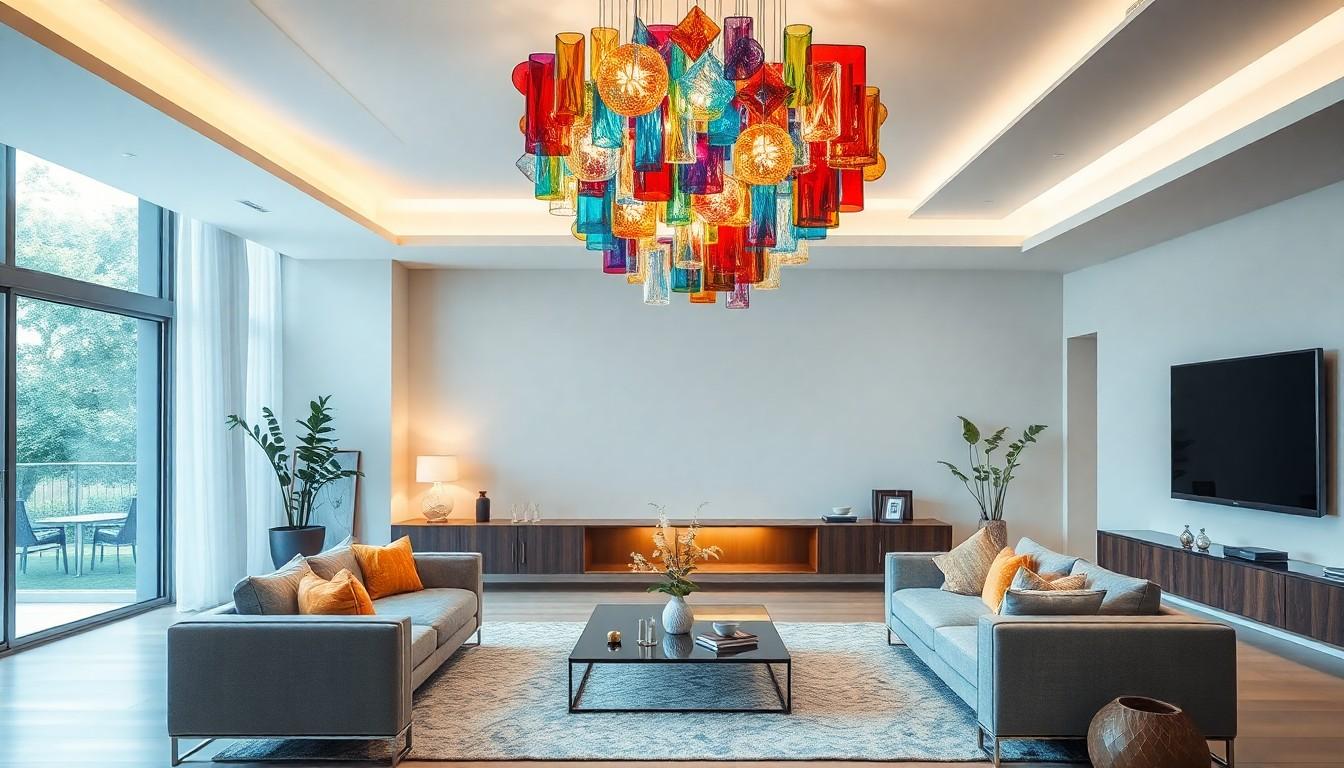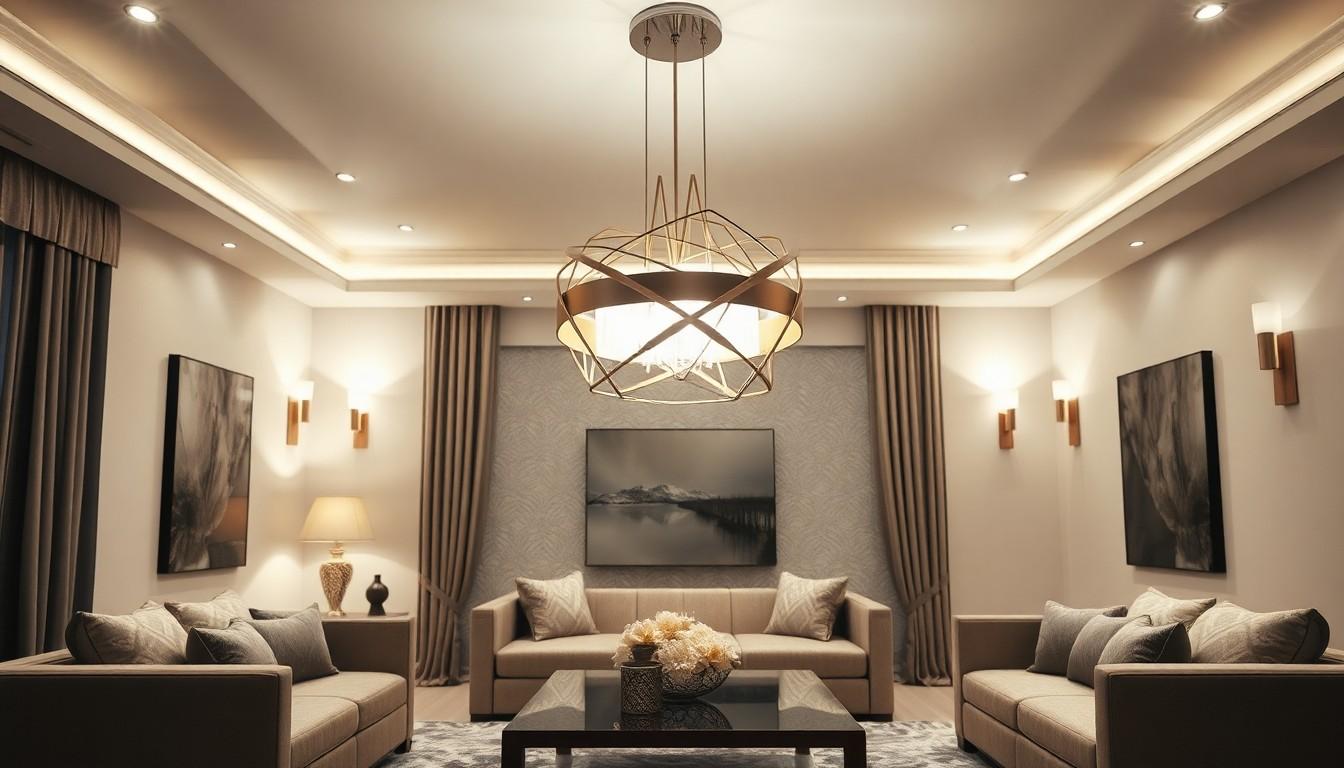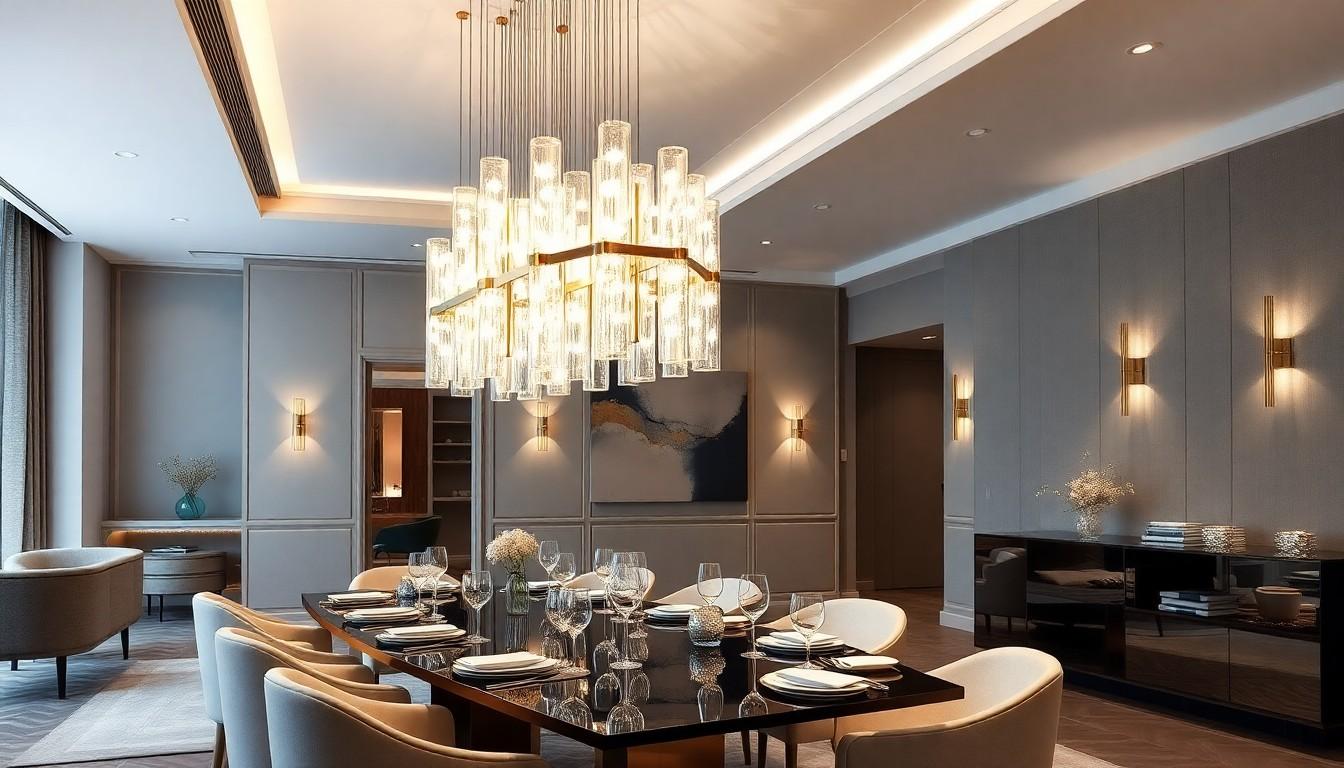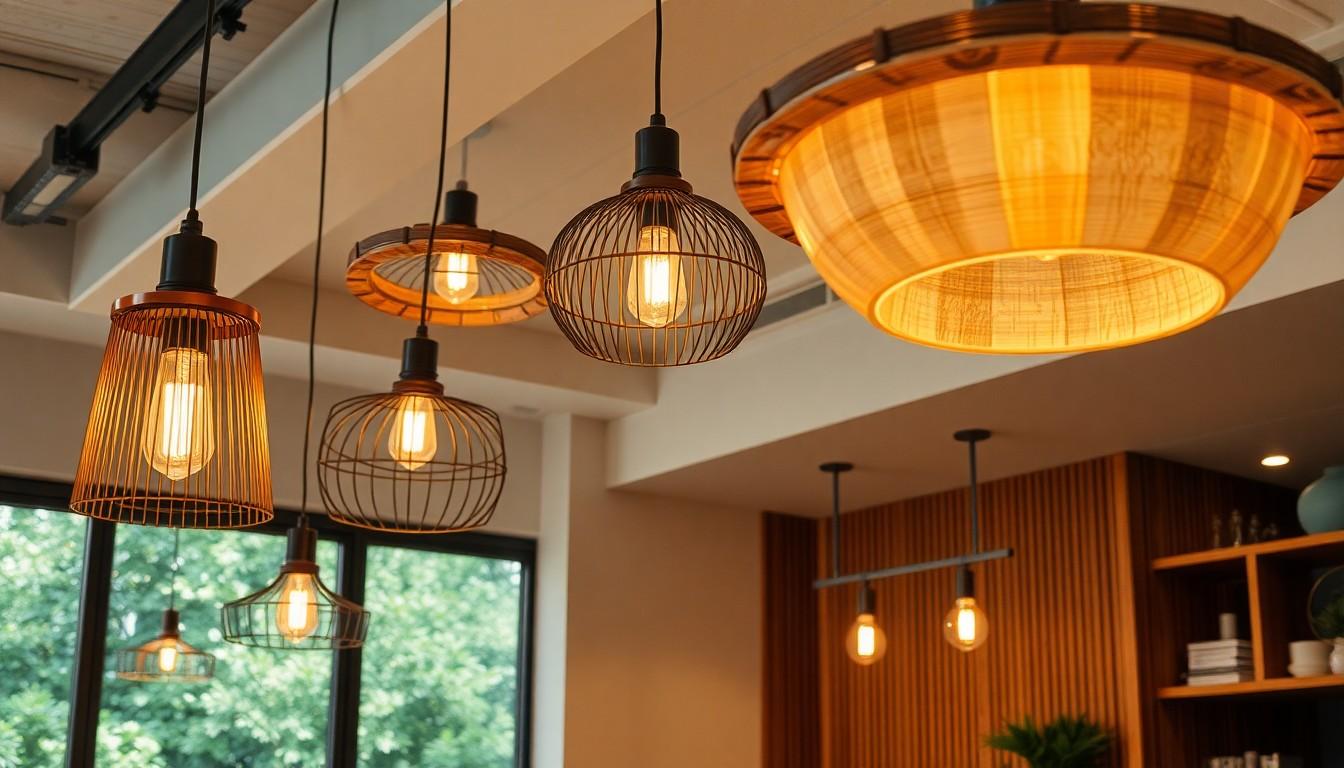All Categories
Featured
Table of Contents
- – The Latest Trends for Luxury Lighting in 2025
- – Statement Lighting as Artistic Centerpieces
- – Smart Technology Integration
- – Sustainable and eco-friendly solutions
- – Trending Styles and Materials
- – Sculptural and geometric designs
- – Natural and Organic Elements
- – Metallic finishes and crystal accents
- – Room-by-Room Lighting Trends
- – Living Room Statement Pieces
- – Kitchen and Dining Innovations
- – Bedroom and Bath Lighting Solutions
- – Popular Fixture Types
- – Modern Chandeliers and Pendants
- – Architectural Wall Sconces
- – Minimalist Ceiling Fixtures
- – Designer Table and Floor Lamps
- – Smart Features and Technology
- – Voice and Motion Controls
- – Color-Changing Capabilities
- – Energy Management Systems
- – Sustainable Lighting Solutions
- – Innovative LED Lighting Technologies that a...
- – Eco-Friendly Materials
- – Solar-Powered Options
- – Design Tips and Implementation
- – Layering Different Light Sources
- – Creating Ambience and Mood
- – Proper Sizing and Placement
- – Common Mistakes to Avoid
- – Improper Fixture Sizing
- – The wrong layering
- – Poor Placement
- – Overlooking Controls
- – Mismatched Styles
- – Energy Inefficiency
- – Future of Luxury Lighting
Luxury lighting design will continue to evolve as we move into 2025. It will combine innovative technology with refined aesthetics, which will transform interior spaces. Lighting is now more than just a functional element. It's a key component in creating sophisticated environments that reflect modern sensibilities and personal style.

This year's lighting design trends are a mix of form and function. Sustainability is a major focus in the high-end market. From energy-efficient solutions to statement pieces that serve as artistic focal points, these emerging trends are reshaping how we illuminate our spaces. Whether you're planning a home renovation or simply staying current with interior design, understanding these luxury lighting trends will help you create spaces that shine with personality and purpose. Learn more about led linear suspension lighting at Lightology.com
The Latest Trends for Luxury Lighting in 2025
Luxury lighting design is a combination of artistic expression, sustainable practices and intelligent integration.
Statement Lighting as Artistic Centerpieces
art installations elevate interior spaces with modern luxury lighting. Monopoint lights in clustered arrangements create focal points to highlight architectural features or artwork. Wood, stone and textured tempered glass are natural materials that can be combined with organic shapes for visual intrigue.
Statement lighting features:
- Colored glass elements with geometric patterns
- Palm-inspired sconce designs in metallic finishes
- Sculptural pendants with organic textures
- Grouped monopoint fixtures for dramatic effect
Smart Technology Integration
Advanced lighting control systems incorporate intuitive automation and customizable settings for precise ambiance management. Smart features improve the luxury lighting experience by:
- Motion-activated lighting
- Voice-controlled brightness adjustment
- Automated scheduling of natural light simulation
- Mobile app integration for remote control
- Color temperature changes throughout the day
Sustainable and eco-friendly solutions
Environmental consciousness drives innovation in luxury lighting with energy-efficient technologies and sustainable materials. According to the Sustainable Furnishings Council 96% of buyers prefer eco-friendly options when style and budget align.
- LED integration for reduced energy consumption
- Natural material incorporation like rattan and bamboo
- Glass and metal recycled components
- Solar-powered outdoor fixtures
- Long-lasting bulbs
| Sustainability Metric | Impact |
|---|---|
| Energy Consumption | 75% reduction with LED technology |
| Product Lifespan | Quality fixtures for 15+ years |
| Material Sustainability | Natural material usage increases by 40% |
| Consumer Preference | 96% favor eco-friendly options |
Trending Styles and Materials
Luxury lighting in 2025 combines innovative materials with advanced technology to create sophisticated illumination solutions. The following design elements define the current landscape of high-end lighting:
Sculptural and geometric designs
Minimalist luxury dominates the contemporary lighting scene with bold geometric shapes and clean lines. Ceiling fixtures feature:
- Angular pendant lights with metallic finishes
- Modular lighting system that creates visual rhythm
- Linear LED arrangements in asymmetrical patterns
- Statement chandeliers with architectural elements
Natural and Organic Elements
Organic shapes inspired by nature transform lighting fixtures into artistic installations that soften interior spaces:
- Pendants inspired by flowing water
- Mountain silhouette wall sconces
- Curved lighting forms that mirror natural landscapes
- Design of fixtures incorporating elements with a biophilic theme
Metallic finishes and crystal accents
Mixed-medium designs combine premium materials to create a luxurious visual impact.
- Patinaed soft gold fixtures that complement varied color schemes
- Traditional elegance with marble and crystals
- Polished brass accents that add contemporary sophistication
- Layered lighting installations using multiple premium finishes
These trends integrate smart technology features, allowing control of brightness, color and scheduling through mobile devices and voice assistants.
| Material Combination | Design Impact | Trend Status |
|---|---|---|
| Marble + Crystal | Traditional Luxury | Rising |
| Soft Gold | Versatile Elegance | Dominant |
| Polished Brass | Modern Sophistication | Emerging |
| Mixed Metallics | Dynamic Interest | Established |
Room-by-Room Lighting Trends

Each room demands specific lighting solutions to enhance functionality and create distinct atmospheres. Here's a detailed breakdown of luxury lighting trends for key spaces in 2025.
Living Room Statement Pieces
Living rooms embrace sculptural lighting fixtures that serve as artistic focal points. The current trend is to:
- Multidimensional lighting effect by layering ceiling lights, pendant fixtures and wall sconces
- Intelligent integration with AI-powered system offering automated control over brightness, color temperature and schedule
- Geometric shapes in metallic finishes creating dramatic visual impact through light and shadow play
- Dynamic color-changing capabilities synced with circadian rhythms to enhance mood and wellness
Kitchen and Dining Innovations
Modern kitchens and dining areas feature illuminated functionality that has aesthetic appeal.
- Illuminated ribbed-glass cabinets integrating LED technology for ambient lighting and display enhancement
- Lighting zones optimized for food preparation and dining.
- Under-cabinet LED strips providing functional workspace illumination
- Natural materials and handcrafted craftsmanship are used to create statement pendants for dining areas.
Bedroom and Bath Lighting Solutions
Bathrooms and bedrooms are given priority for atmospheric lighting that is designed to relax and function:
- Customizable mood lighting systems adapting to different activities throughout the day
- Motion-activated floor lighting for nighttime navigation
- Smart mirrors with LED frames that offer adjustable color temperatures
- Dimmable ambient fixtures creating spa-like atmospheres in bathrooms
- Energy-efficient LED technology reducing power consumption by 75%
This data-driven lighting approach enhances the aesthetics and functionality of each room while incorporating smart technology and sustainable practices.
Popular Fixture Types

Luxurious lighting in 2025 will be characterized by bold, statement pieces that combine artistic expression with functionality. The most sought-after fixtures blend innovative materials with sophisticated design elements.
Modern Chandeliers and Pendants
Modern chandeliers serve as dramatic focal points in living and dining spaces. Chandeliers with intricate details and materials such as glass, brass and marble will dominate 2025 trends. Pendant lighting is available in a variety of styles and materials.
- Clustered arrangements of 3-5 fixtures for dining areas
- Kitchen islands can use single pendants that are 24 to 36 inches wide.
- Entryways with natural fibers and crystals
- Copper and brass finishes for contemporary spaces
Architectural Wall Sconces
Wall sconces emerge as essential design elements in 2025 luxury interiors. These fixtures incorporate sculptural forms and asymmetrical designs to create:
- Intimate lighting zones in hallways
- Ambient lighting for master bedrooms
- Bathrooms with decorative accents
- Living areas with artistic statements
Minimalist Ceiling Fixtures
Contemporary ceiling fixtures embrace clean lines and geometric forms. Semi flush mounts with brass accents offer:
- Low-profile lighting for rooms with standard ceiling heights
- Understated elegance through simple shapes
- Modern interpretations of classic designs
- Integrate seamlessly with existing decor
Designer Table and Floor Lamps
- Reading nooks with adjustable task lighting
- Ambient illumination for living spaces
- Art pieces that are also sculptures
- Versatile placement options for room styling
Smart Features and Technology

Modern luxury lighting integrates advanced technology to create personalized environments through intelligent control systems and automated features. Smart lighting transforms spaces with customizable settings and enhanced functionality.
Voice and Motion Controls
Voice-activated lighting controls simplify home automation through hands-free operation, intuitive controls and voice-activated systems. Advanced motion sensors automatically adjust lighting levels according to room occupancy and light conditions. Integration with smart home assistants enables seamless control through simple voice commands for:
- Adjusting brightness levels
- Switching lights on or off
- Setting automated schedules
- Custom lighting scenes
- Managing multiple light zones
Color-Changing Capabilities
LED technology enables dynamic color transitions from warm candlelight to cool daylight tones. Color spectrum control features include
- Programmable color temperature shifts
- Full-spectrum RGB color options
- Preset lighting scenes
- Circadian rhythm optimization
- Mood-enhancing color combinations
| Color Temperature | Application | Benefit |
|---|---|---|
| 2700K-3000K | Evening relaxation | Promotes melatonin production |
| 4000K-5000K | Daytime activities | Enhances focus and productivity |
| 6500K+ | Task lighting | Improves visual clarity |
Energy Management Systems
Smart energy management optimizes power consumption through automated controls and monitoring capabilities:
- Occupancy-based lighting adjustments
- Daylight harvesting sensors
- Energy usage tracking
- Automated dimming schedules
- Reports on power consumption
These systems can reduce energy waste because they automatically adjust light levels according to the natural light available and the room usage patterns, while maintaining optimal illumination throughout the day.
Sustainable Lighting Solutions
Sustainable lighting solutions combine eco-conscious materials with energy-efficient technologies to reduce environmental impact while maintaining luxury aesthetics. Interior designers report a 43% increase in sustainability-focused lighting projects for 2025, marking a significant shift in luxury design preferences.
Innovative LED Lighting Technologies that are Energy-Efficient
LED technology is transforming luxury lighting by reducing energy consumption and improving performance. These fixtures deliver:
- Reduces electricity consumption by 60-80% compared to traditional bulbs
- Immediate full-power illumination without warm-up cycles
- Customizable dimming features for precise atmosphere control
- Zero harmful emissions
- Extended lifespan reducing replacement frequency
Eco-Friendly Materials
Sustainable materials are increasingly being used in luxury lighting to reflect the growing environmental consciousness.
- Natural materials like rattan bamboo & reclaimed wood
- Recycled metal & glass components
- Low-impact manufacturing processes
- Packaging that is biodegradable
- Reduce transport emissions by using locally sourced materials
| Material Type | Environmental Impact Reduction |
|---|---|
| Metal Recycled | 75% less energy consumption |
| Natural Materials | 40% lower carbon footprint |
| LED Components | 90% recyclable parts |
Solar-Powered Options
- Outdoor fixtures with integrated photovoltaics
- Battery storage systems for consistent performance
- Smart charging technology optimizing power collection
- Weatherproof construction for year-round operation
- Wireless control capabilities for automated adjustment
Design Tips and Implementation
Layering Different Light Sources
Create depth and visual interest by implementing three distinct lighting layers in your luxury space. Use ambient lighting in the form of ceiling fixtures to illuminate your space. Add task lighting by using wall sconces and table lamps strategically placed for certain activities. Accent lighting can be used to highlight architectural details or artwork. Install dimmers in each layer so that brightness can be adjusted according to the time of day or activity. Space wall sconces 60 to 66 inches from the floor at 6-foot intervals for optimal coverage.
Creating Ambience and Mood
Transform your space with customized lighting scenes by using smart technology. Install color-changing LED systems to adjust the color temperature from warm (2700K) for relaxation to cool (5000K) for productive activities. Mirrors can be strategically placed to create depth and reflect light. Layer atmospheric elements with:
- Adjustable wall sconces for indirect lighting
- Dimmable pendant lights for focused illumination
- Integrated LED strips to add subtle accent lighting
- Smart bulbs with programmable settings
- Candlesconces for intimate ambiance
Proper Sizing and Placement
Measure the dimensions of your room to select fixtures that are proportional.
| Room Feature | Lighting Calculation |
|---|---|
| Chandelier Width | Room Width (ft) + Length (ft) = Diameter (inches) |
| Pendant Height | 30 to 36 inches above the table |
| Wall Sconce Spacing | Every 6-8 feet |
| Ceiling Height Clearance | Minimum 7 feet from floor |
Mount bathroom sconces at eye level to eliminate shadows. Install kitchen pendants 30-36 inches above countertops or islands. Place floor lamps in the living room behind seating areas and at reading height.
Common Mistakes to Avoid
Improper Fixture Sizing
Oversized or undersized fixtures create visual imbalance in luxury spaces. Select chandeliers that measure 2-3 inches in diameter for every foot of room width. Position pendant lights 30-36 inches above dining tables for optimal illumination balance.
The wrong layering
Single light sources can create harsh shadows, and reduce functionality. Include these three essential layers
- Ambient lighting is used to illuminate the entire room.
- Task lighting for specific activities like reading or cooking
- Accent lighting for architectural features and artwork
Poor Placement
The incorrect placement of fixtures can affect both aesthetics as well as functionality. These guidelines will help you to position your fixtures correctly.
- Mount wall sconces 60-72 inches from the floor
- Space recessed lights 24-30 inches from walls
- Place chandeliers at the center of tables, leaving 30 to 36 inches clearance.
Overlooking Controls
Basic on/off switches limit the flexibility of luxury lighting installation. Integrate:
- Dimming controls for adjustable ambiance
- Compatible with Smart Home for Automated Scenes
- Motion sensors for energy efficiency
- Remote control integration with mobile apps
Mismatched Styles
Mixing incompatible design elements creates visual discord. Consider:
- Material consistency across all fixture collections
- Complementary finishes within the same space
- Unified design language across all connected areas
- Color temperatures that are consistent (2700K-3000K in residential spaces)
Energy Inefficiency
- LED bulbs with 75% lower energy consumption
- Smart controls for automatic power optimization
- Natural light sensors for daylight harvesting
- Energy Star-certified fixtures to maximize efficiency
Future of Luxury Lighting
Luxury lighting is a bright future that combines technology, sustainability, and artistry. Smart integration, personalized control and eco conscious designs will allow you to transform your space in a variety of ways.
As we move toward 2025 luxury lighting continues to evolve beyond mere functionality. Your lighting choices will serve as both practical solutions and artistic statements while reflecting your commitment to environmental responsibility.
Staying informed on these new trends and innovations will help you make the right lighting choices to enhance your home. The future of luxury light offers many exciting options for creating stylish and sustainable environments, whether you are planning a home renovation or simply updating one room.
Table of Contents
- – The Latest Trends for Luxury Lighting in 2025
- – Statement Lighting as Artistic Centerpieces
- – Smart Technology Integration
- – Sustainable and eco-friendly solutions
- – Trending Styles and Materials
- – Sculptural and geometric designs
- – Natural and Organic Elements
- – Metallic finishes and crystal accents
- – Room-by-Room Lighting Trends
- – Living Room Statement Pieces
- – Kitchen and Dining Innovations
- – Bedroom and Bath Lighting Solutions
- – Popular Fixture Types
- – Modern Chandeliers and Pendants
- – Architectural Wall Sconces
- – Minimalist Ceiling Fixtures
- – Designer Table and Floor Lamps
- – Smart Features and Technology
- – Voice and Motion Controls
- – Color-Changing Capabilities
- – Energy Management Systems
- – Sustainable Lighting Solutions
- – Innovative LED Lighting Technologies that a...
- – Eco-Friendly Materials
- – Solar-Powered Options
- – Design Tips and Implementation
- – Layering Different Light Sources
- – Creating Ambience and Mood
- – Proper Sizing and Placement
- – Common Mistakes to Avoid
- – Improper Fixture Sizing
- – The wrong layering
- – Poor Placement
- – Overlooking Controls
- – Mismatched Styles
- – Energy Inefficiency
- – Future of Luxury Lighting
Latest Posts
The Impact of Lighting on Overall Interior Design in 2025
The Future of Lighting: Integrating Technology and Design
A Journey Through the Evolution of Lighting in Architecture
More
Latest Posts
The Impact of Lighting on Overall Interior Design in 2025
The Future of Lighting: Integrating Technology and Design
A Journey Through the Evolution of Lighting in Architecture